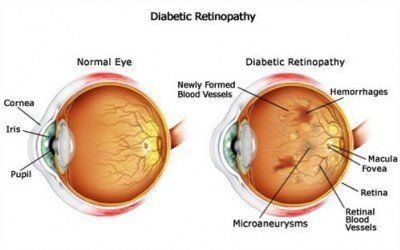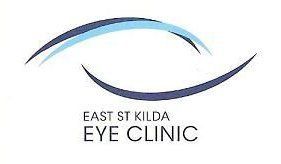DIABETIC RETINOPATHY TREATMENT IN MELBOURNE
Diabetes can affect your eyes by damaging the blood vessels supplying the retina, causing diabetic retinopathy. These blood vessels may either leak or close down. Diabetic retinopathy may be mild or advanced and can result in blindness. Poorly controlled blood sugar and blood pressure are the main risk factors.

Nonproliferative Retinopathy
This stage is sometimes known as background retinopathy. In this stage, blood vessels within the retina may swell and leak, causing small haemorrhages and fatty deposits called exudates to form in retina. Many people with diabetes show signs of this stage but it does not usually affect vision unless swelling of the macula in the centre of the retina (macular oedema) occurs.
Proliferative Retinopathy
In more advanced retinopathy, the small retinal blood vessels close down and new blood vessels begin to grow in response (neovascularisation). These new blood vessels are very fragile and do not supply the retina with normal blood flow. These vessels may bleed into the vitreous gel in front of the retina which severely affects the vision and they can also result in severe form of Glaucoma (raised pressure within the eye). Scar tissue may develop on the retina as neovascularisation progresses which can then shrink and pull the retina. This leads to tractional retinal detachment resulting in severe visual loss and needing surgery.
Diabetic Macular Oedema
Macular oedema is caused by fluid leaking from blood vessels in the centre of the retina and is the most common cause of central visual loss in diabetes

Management
The best management is good long term control of diabetes including blood sugars, blood pressure and cholesterol. When retinopathy is present, progression is limited by taking a daily tablet of fenofibrate (Lipidil).
Injections of a medicine called anti-VEGF (most commonly Eylea or Lucentis) into the eye helps stabilise and reverse both macular oedema and advanced retinopathy. This medication reduces swelling of the macula and helps new blood vessels forming at the back of the eye to regress. This treatment stabilises vision and can often improve vision when the damage is reversed. These injections are usually needed over a prolonged period.
Injection of steroid is sometimes added to reduce the swelling and in some cases laser is recommended to help stabilise the retina.
Cataract surgery may be needed as cataract develop earlier in people with diabetes
It is very important for diabetics to have regular eyes checks so that retinopathy can be detected and treated when needed.
